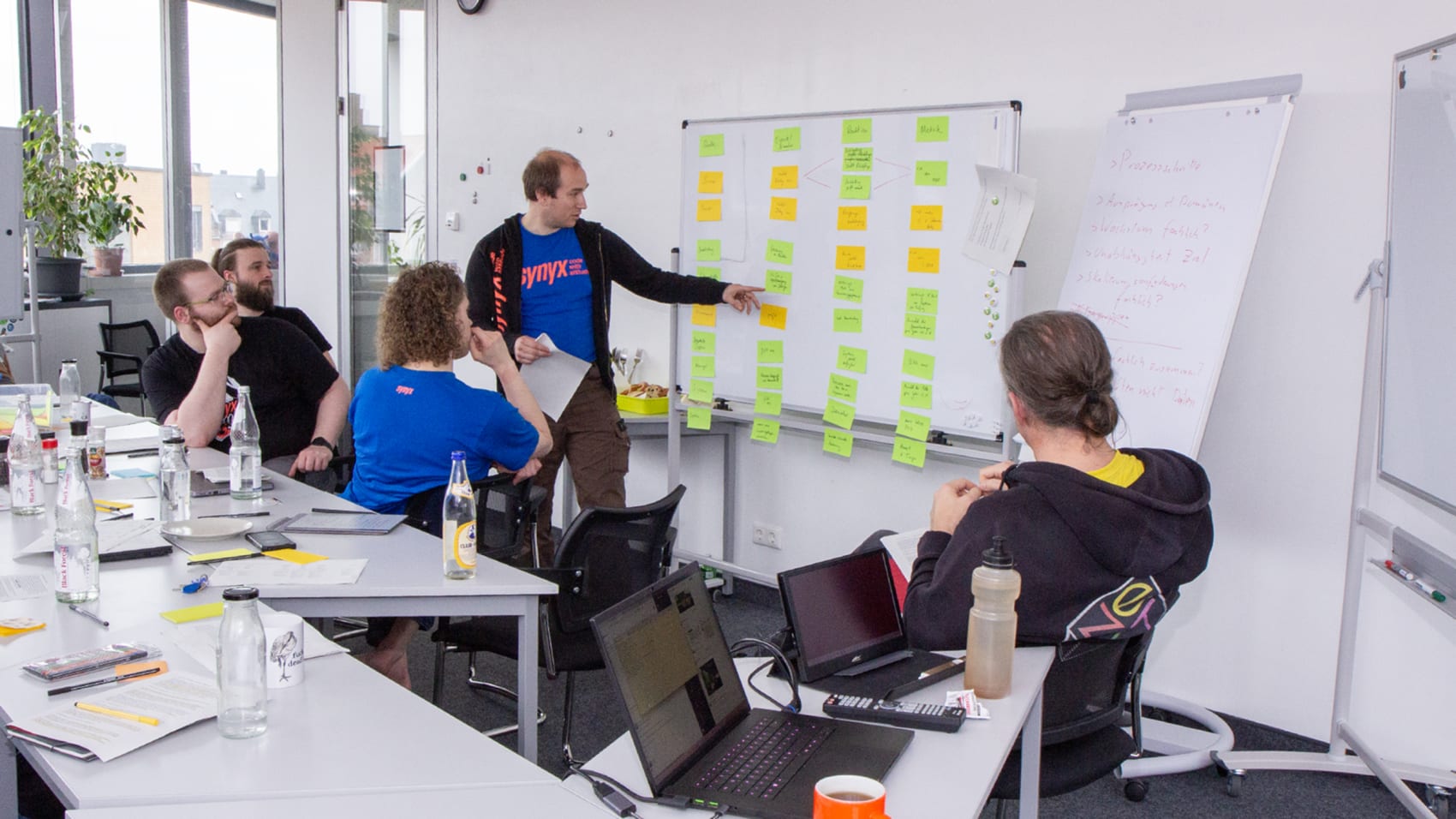No slides, but hands-on!
Designing architectures is a complex task. In practice, however, some techniques have emerged that make architecture much more successful. In this training you will not only learn the most important approaches for software architecture, but you will also apply them practically. So you can start directly in the project!
Architecture work is complex: every project has its own challenges, so every architecture is different. But there are basic techniques that play a central role in the design of architectures. This training teaches you such techniques in a very practical way using concrete examples. This ensures that you will be already able to apply them during the training and thus be able to use them in the project without any problems.
Procedure
Over a period of four weeks, you will take part in a four-hour session per week on one of the topics. There is also a 2-day in person version of the training.
Schedule
- Four four-hour small group sessions on Qualities, Bounded Contexts, Strategic Design and Legacy
What you learn
Qualities or non-functional requirements are necessary to understand the problem to be solved in the first place. Otherwise, without a good understanding of the technical challenges, an inappropriate or ineffective solution will be created. Bounded contexts divide a system into modules – an essential foundation of any architecture. Strategic design enables the integration of modules into the overall system. Finally, you’ll learn how to effectively deal with legacy, which often impedes the effective evolution of a system.
Agenda
- Qualities: Understanding and implementing non-functional requirements
- Bounded context: dividing systems into modules from a domain perspective
- Strategic Design: understanding the interaction of modules
- Legacy: Being able to deal with existing systems
Your Benefits
Focus on architecture topics that are critical to success
Lots of practice: apply what you have learned immediately
Feedback for your implementation of the concepts
Coaching: We address your individual challenges
Flexible planning and easy to combine with day-to-day business due to small units
Audience
Anyone who is involved in architecture in software projects. We do not assume any prior knowledge of software architecture.
Training Objectives
Align architectures with non-functional requirements and necessary qualities
Structure systems with bounded contexts and integrate them with strategic design
Integrate legacy systems
Be able to apply learned skills directly in practice
Your Trainers

Eberhard Wolff
SWAGLab
Architecture, Microservices, Domain-driven Design
- Domain-driven Design renovates Legacy
- Flexible architectures
- Software architecture kickstart
- Team Topologies Deep Dive
Eberhard Wolff is Head of Architecture at SWAGLab and has worked as an architect and consultant for more than twenty years, often at the intersection of business and technology. He is the author of numerous articles and books, including on microservices, and is a regular speaker at international conferences. His technological focus is on modern architecture and development approaches such as cloud, domain-driven design and microservices.
Here is the link to his website.
Our Customers Say
The Kickstart gave me a new perspective on software architecture with many aha moments.
Online Courses
On-site Courses
Dates by RequestEvent ticketing software by pretix
In-House Training
You can also book this training as an in-house training course exclusively for your team. Please use the enquiry form for more details.
Enquire nowRelevant Other Training Courses
CPSA Foundation Level
iSAQB Certified Professional for Software Architecture – Foundation Level
Technology —Methodology —Communication —from 2,950 €
iSAQB® Module Foundation
In this training course, you will learn the basics for software architects.

